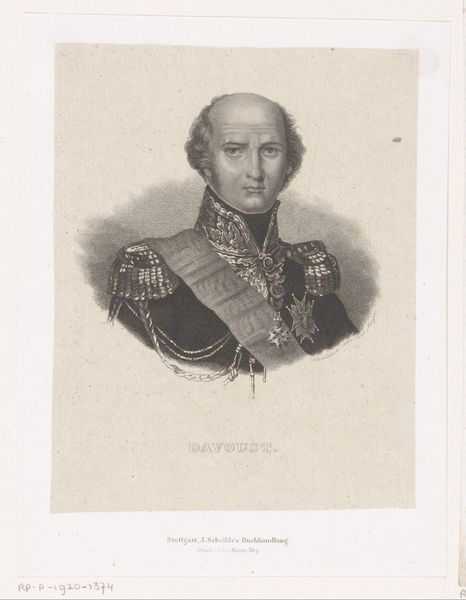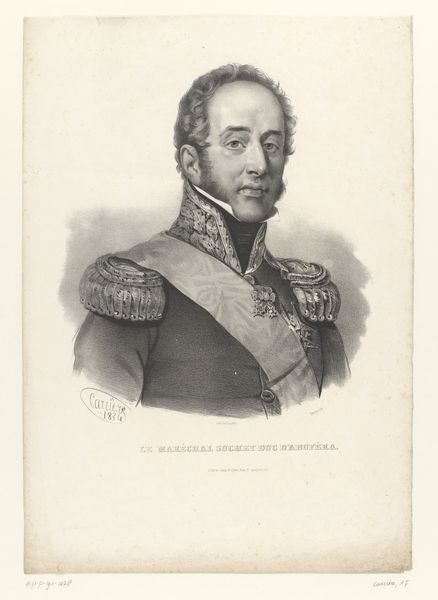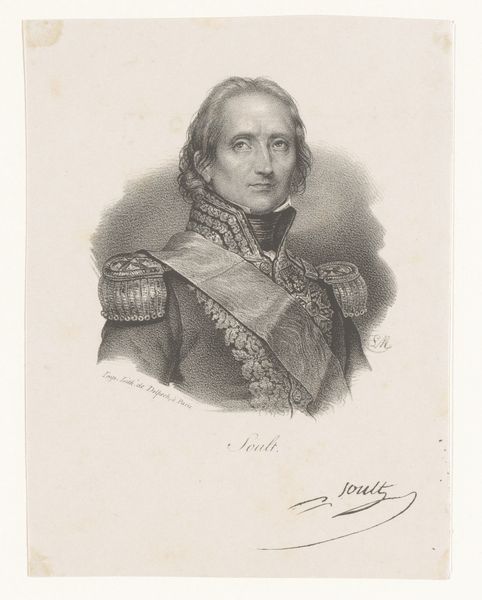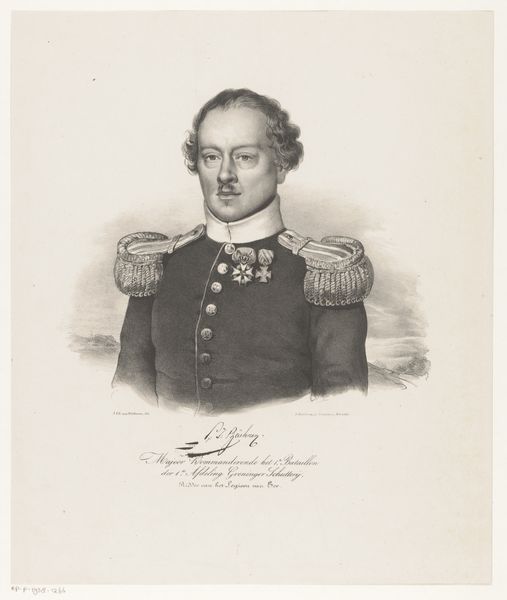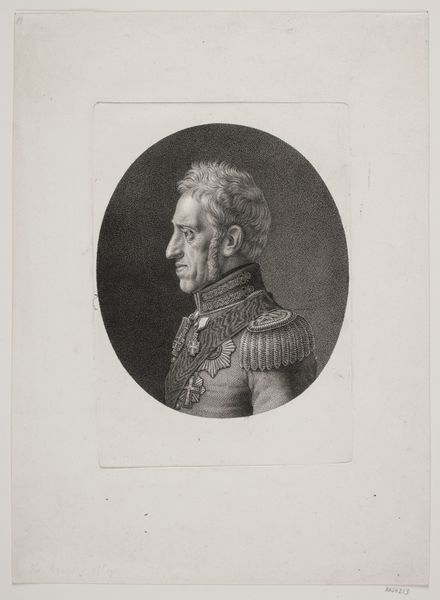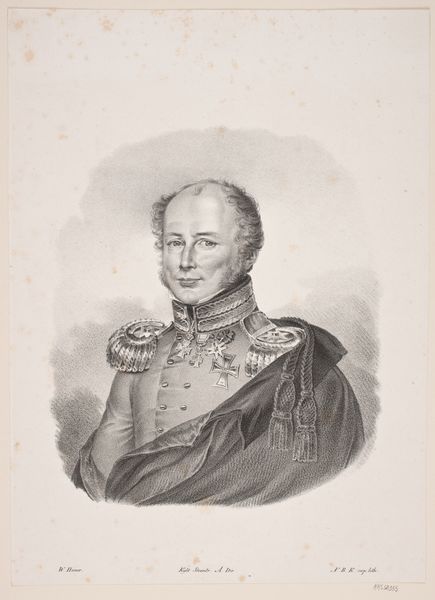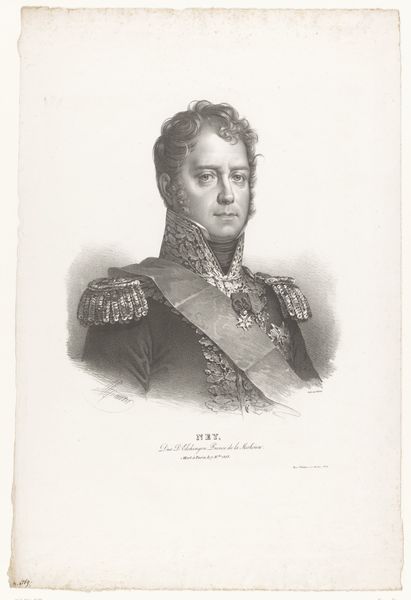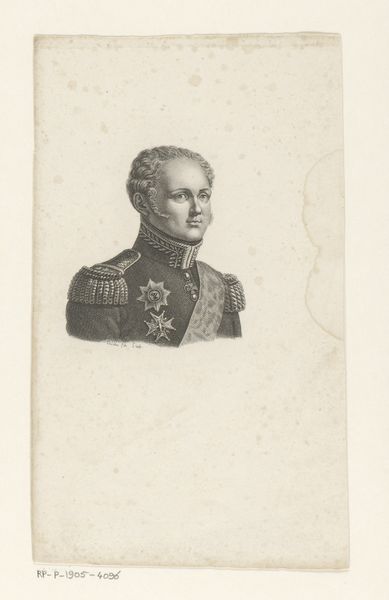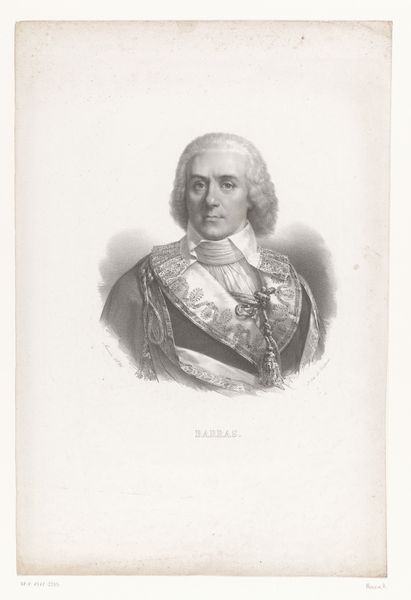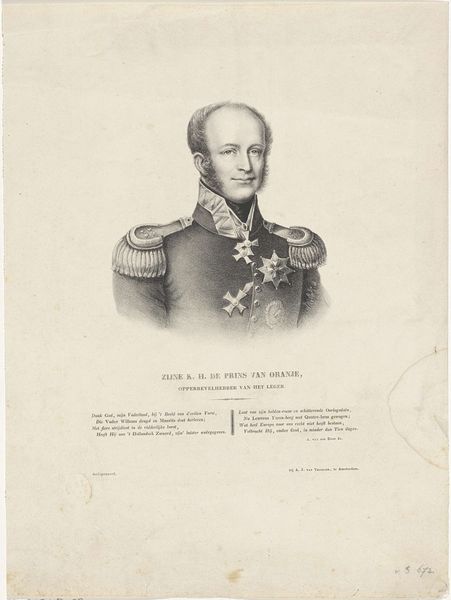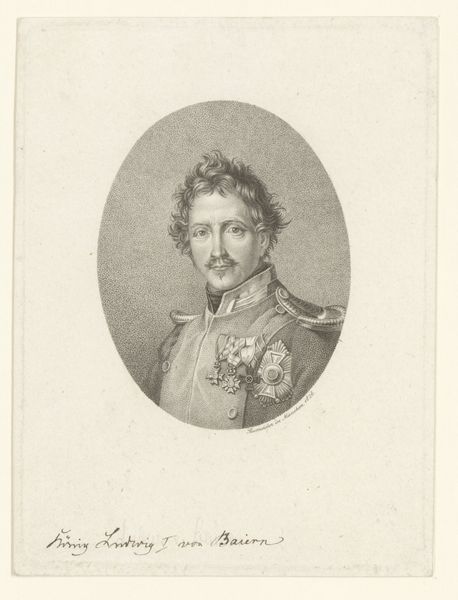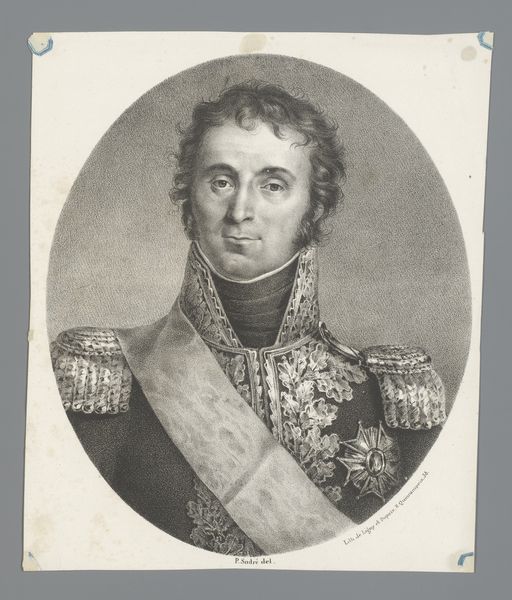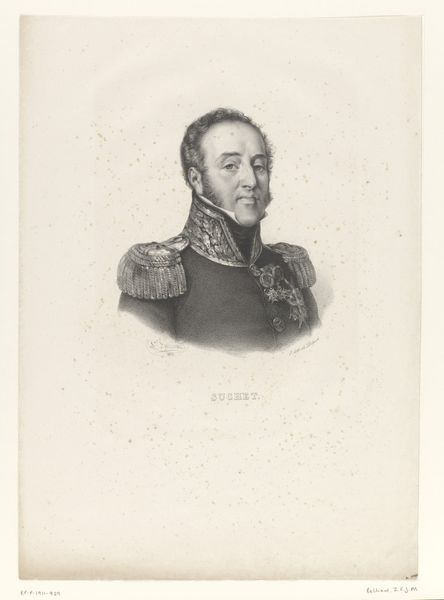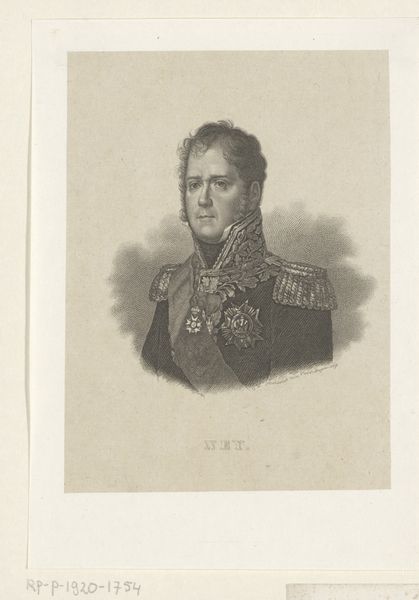
print, engraving
#
portrait
#
neoclacissism
# print
#
history-painting
#
engraving
#
realism
Dimensions: height 503 mm, width 358 mm
Copyright: Rijks Museum: Open Domain
Jules David made this print of Marshall Guillaume-Marie-Anne Brune sometime in the 19th century. In it, we can see a number of visual codes communicating the sitter's high status. The image creates meaning through its visual codes. The trappings of military rank – the immaculate uniform, the epaulettes and sash, the medals and decorations – all point to Brune’s role as a leading figure in the French army of his day. The image was made after Brune’s death in 1815, during the Bourbon Restoration. The circumstances of his death, murdered by royalists, made him a martyr to the Republican cause. Prints like this served as a form of political memory, helping to maintain Brune’s reputation as a hero of the revolution. The historian's role is to connect the image to its political moment, using resources like contemporary newspapers and political pamphlets, to fully understand its meaning. Art is always contingent on social and institutional context.
Comments
No comments
Be the first to comment and join the conversation on the ultimate creative platform.
